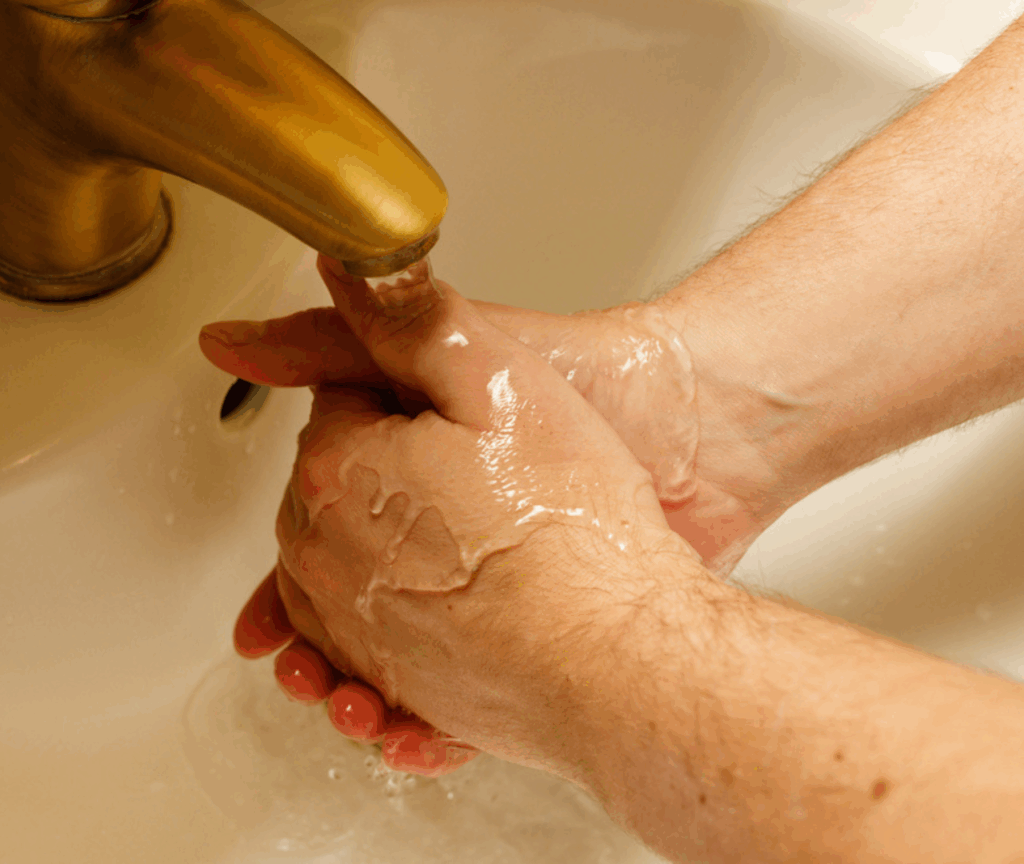We all know that handwashing is important. But here’s the real question: are you doing it often enough—and correctly? Many people think a quick rinse with water is enough to keep germs away, but in reality, proper hand hygiene requires more than a splash. Clean hands are one of the simplest and most powerful tools to prevent the spread of illness, especially during the winter months when colds, the flu, and other viruses are more common.
Why Handwashing Matters
Our hands touch countless surfaces throughout the day—door handles, phones, keyboards, grocery carts, and more. Each of these surfaces can carry bacteria and viruses. When we touch our eyes, nose, or mouth afterward, we give germs a direct path into our bodies.
According to Centers for Disease Control and Prevention (CDC), handwashing can reduce respiratory illnesses like colds and flu by up to 20%. That means something as small as washing your hands properly can help prevent serious illnesses and even save lives.
When Should You Wash Your Hands?
You might think you’re washing your hands frequently—but there are key moments when hand hygiene matters most. You should wash your hands:
- Before eating or preparing food
- After using the restroom
- After coughing, sneezing, or blowing your nose
- After touching garbage
- After handling money or frequently used public surfaces
- After caring for someone who is sick
- After touching pets or cleaning up after them
Many people skip handwashing at least some of these times, which increases the chances of spreading germs.
Are You Washing the Right Way?
Not all handwashing is equal. A quick rinse doesn’t remove germs effectively. The proper way to wash your hands involves five simple steps:
- Wet your hands with clean, running water.
- Lather with soap, covering the backs of your hands, between your fingers, and under your nails.
- Scrub for at least 20 seconds (humming the “Happy Birthday” song twice is a good timer).
- Rinse thoroughly with clean water.
- Dry with a clean towel or air dryer.
This method helps break down and remove the oils and microbes that water alone can’t wash away.
Hand Sanitizer: A Helpful Backup
When soap and water aren’t available, alcohol-based hand sanitizer can be a good alternative—but only if it contains at least 60% alcohol. Keep in mind, sanitizer doesn’t eliminate all types of germs and won’t work as well on visibly dirty or greasy hands.
Common Handwashing Mistakes
Even people with good hygiene habits make mistakes. Some of the most common errors include:
- Not washing for long enough
- Missing spots like the thumbs and fingertips
- Not drying hands completely
- Using dirty or shared towels
Each of these missteps can reduce the effectiveness of handwashing and leave germs behind.
Handwashing and Seasonal Illnesses
December is a peak time for flu and respiratory infections. With holiday gatherings, travel, and colder weather keeping people indoors, germs spread more easily. Practicing good hand hygiene can help protect not just you—but also your loved ones, especially children, older adults, and those with weakened immune systems.
Building Better Habits
Handwashing isn’t just a personal habit—it’s a public health tool. By washing your hands regularly and correctly, you help create a safer environment for everyone. Here are a few ways to build better habits:
- Keep soap and hand sanitizer in easy-to-access places.
- Set reminders, especially during busy times.
- Encourage family, coworkers, and friends to practice proper hand hygiene.
- Make handwashing a routine part of daily activities like arriving home or before meals.
A Simple Action with a Big Impact
So, how often do you really wash your hands the right way? If your answer isn’t “every time it matters,” now is the perfect time to change that. Handwashing is quick, affordable, and one of the most effective ways to stay healthy.
👉 This season, make handwashing a priority—not just for yourself, but for everyone around you. Clean hands can stop the spread of illness and help keep your holidays happy and healthy.

